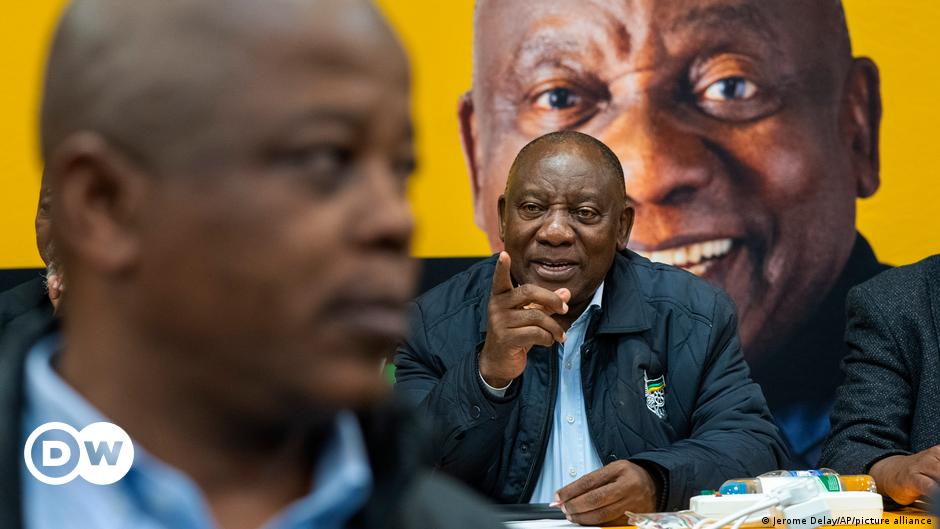In a recent development, major opposition parties in South Africa are contemplating a groundbreaking proposal put forth by the African National Congress (ANC) to establish a national unity government. Following the country’s recent election, the ANC emerged victorious, securing a considerable number of seats in the National Assembly.
ANC leader and current President, Cyril Ramaphosa, emphasized the significance of forming a unified front with a diverse array of political parties to propel South Africa forward in the upcoming term. Despite winning 40% of the vote and garnering 159 out of 400 seats in the National Assembly, the ANC fell short of achieving an outright majority for the first time since the inception of democratic elections in 1994, necessitating the cooperation of other parties to govern effectively.
Key opposition parties in the mix include the pro-business Democratic Alliance (DA) boasting 87 seats, the populist uMkhonto we Sizwe (MK) aligned with former President Jacob Zuma securing 58 seats, and the radical-left Economic Freedom Fighters, which clinched 39 seats. Ramaphosa disclosed that constructive dialogues have already taken place between the ANC and the DA, EFF, as well as smaller parties like the Inkatha Freedom Party (IFP), the National Freedom Party, and the anti-immigrant Patriotic Alliance.
As the new parliament prepares to convene for the first time on Friday, the pressure mounts on the ANC to solidify an agreement with its potential collaborators. The concept of a national unity government, characterized by a wide-ranging coalition involving various parliamentary factions, holds historical precedents in South Africa. Notably, the country witnessed its only previous government of national unity in the aftermath of the inaugural multiracial elections in 1994, culminating in the presidency of Nelson Mandela.
However, the absence of a legislative or constitutional framework governing the establishment of the proposed unity government in present-day South Africa raises pertinent questions. Ebrahim Fakir, an analyst at the Electoral Institute for Sustainable Democracy in Africa, underscored that the envisaged unity government would signify an agreement among political entities regarding power-sharing without a prescribed set of rules governing the process.
In terms of advantages, a national unity government could potentially foster social cohesion by affording representation to various segments of the populace in a diverse society grappling with historical ethno-racial disparities. Moreover, during times of crisis, unity governments can leverage their parliamentary strength and broad public legitimacy to navigate formidable challenges such as impending conflicts or economic instability.
Conversely, experts caution about the inherent risks of political instability stemming from conflicting policy positions among multiple parties, potentially leading to deadlocks on critical issues like budgetary allocations. In light of the divergent interests at play, sustaining a cohesive unity government in the long run poses a formidable challenge.
The response from other political parties has been a mix of cautious consideration and skepticism. While the DA has expressed reservations about aligning with the EFF or MK due to ideological disparities that could adversely impact the economy, the IFP has indicated openness to a national unity government pending further details. The MK, on the other hand, has raised concerns about alleged voting irregularities in the recent election and has taken legal action to challenge the results.
As South Africa navigates this pivotal juncture in its political landscape, the deliberations surrounding a potential national unity government underscore the complexities and nuances of coalition-building in a multi-party democracy. In a country marked by a chequered history of racial tensions and socio-economic challenges, the prospect of a unity government embodies both promise and peril as diverse stakeholders navigate uncharted territories to chart a path forward.
